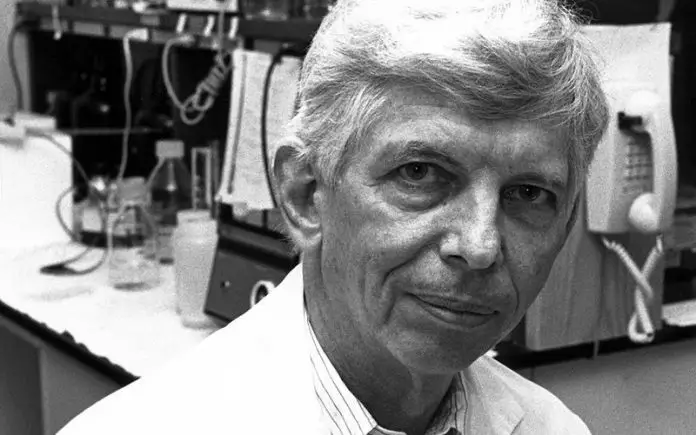Alfred Knudson, who has died aged 93, was a scientist whose research of the genetic components that make some people weak to most cancers laid the foundations for contemporary analysis into the illness.
Within the early Nineteen Seventies Knudson started conducting analysis on a gaggle of sufferers affected by a uncommon type of most cancers. Retinoblastoma, through which a tumour develops within the light-detecting cells behind the attention, is present in younger kids, a indisputable fact that Knudson reckoned would make it simpler to review than a few of the extra complicated sorts of cancerous development. “If a child could be born with most cancers it’s about so simple as it could actually get,” he mentioned later.
By trawling via information collected on sufferers in England and on the MD Anderson Most cancers Middle in Houston, Texas, Knudson noticed that in instances the place there was a powerful household historical past of retinoblastoma, a affected person’s tumours often developed early and grew in each eyes. But there have been additionally households with no historical past of the most cancers, and in such instances the illness tended to set in just a few years after beginning and have an effect on just one eye.
The distinction between these “familial” and “sporadic” types of retinoblastoma, Knudson urged, was grounded within the affected person’s genetics.
In a ground-breaking 1971 paper, he outlined a “two-hit speculation” that defined the 2 programs the illness might take. Each regular cell has two copies of each gene, that means that earlier than a person can go on to develop retinoblastoma, two genetic mutations should happen.
Both a toddler inherits the primary genetic mutation from its mother and father after which develops a second fault within the retinal cells throughout the first 9 months of life – the “familial” type of retinoblastoma – or each “hits” happen by probability, over time: the “sporadic” kind. Causes of a mutation that isn’t inherited would possibly embody publicity to radiation or poisonous chemical compounds. Till each mutations have occurred, the conventional copy of the gene is ready to preserve the defective one in verify. Constructing on this, Knudson later proposed the existence of a most cancers suppressor gene – or “anti-oncogene” – that have to be knocked out earlier than tumours can develop.
Knudson’s paper was greeted with some bafflement at first. As his principle was grounded in statistical evaluation reasonably than molecular analysis – “inferring the wind from the motion of the bushes”, as he put it – many biologists doubted that his “anti-oncogenes” even existed. It was not till 1986, when a staff of investigators managed to establish and clone the gene essential for the suppression of retinoblastoma, that his findings had been vindicated.
Subsequent analysis discovered that the “two-hit speculation” might additionally apply to hereditary types of breast, kidney and colon most cancers. In 1998 Knudson obtained the Albert Lasker Award – colloquially referred to as “America’s Nobel” – for his work on “one among many defining ideas behind all of contemporary most cancers biology”.
Alfred George Knudson was born in Los Angeles on August 9 1922, to a Scandinavian father and a mom of Irish extraction. Each his mother and father labored in accountancy, and he was the primary member of the household to attend college. He bought a spot finding out biology on the California Institute of Know-how, later switching to drugs.
His PhD was in genetics and biochemistry – a discipline which, since James Watson and Francis Crick had cracked the construction of DNA in 1953, was coming into a revolutionary new period. Together with his doctorate underneath his belt, Knudson joined the Metropolis of Hope Medical Middle in Duarte, California in 1956.
From 1976 till his loss of life he labored on the Fox Chase Most cancers Middle in Philadelphia, one the few American analysis services devoted completely to most cancers, the place he held a number of positions together with that of president. In 2004 he obtained the Kyoto Prize for excellent lifetime achievement in science.
Alfred Knudson married Anna Meadows, a paediatric oncologist, in 1976. She survives him with three daughters from a earlier marriage.
Alfred Knudson, born August 9 1922, died July 10 2016














